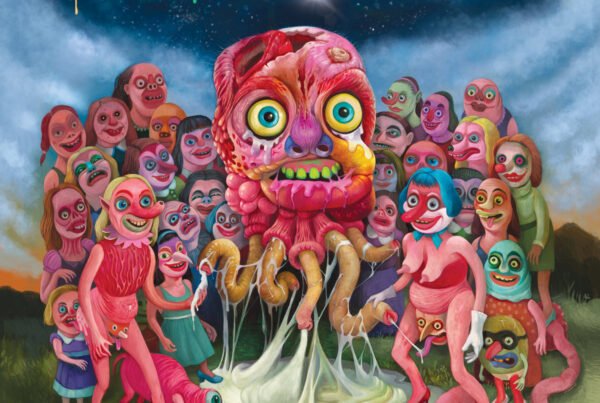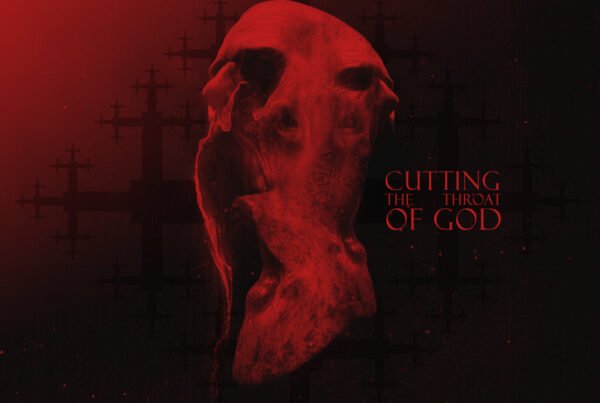Grime has always been a uniquely British genre, with hard beats and harder street rhymes. Over the last few years though there have been several projects coming out of the UK exploring new influences with some fantastic results. Little Simz’ Grey Area and Dave’s Psychodrama were both ground-breaking. Conflict of Interest, while not sounding like either of those albums, is similar in scope both thematically and musically.
After starting his career with the collection NASTY, and having founded The Movement, Ghetts has released several projects as an independent artist. Despite his reputation as an aggressive grime rapper, these releases have included a range of themes from the street life of his criminal past to relationships and family. And yet Conflict of Interest feels completely new. The beats are slowed down and bathed in choir samples, strings, horns, and jazz piano, in a potent cocktail of sound. The record is an autobiography of sorts, exploring past relationships, family, legacy, race, violence, and his own prowess as a rapper. And yet, despite its varied themes and sounds, the record maintains a reflective mood throughout.
Ghetts shows remarkable versatility as a rapper. He’s got a voice that’s perfect for grime, complete with an East London accent, and he’s learnt to vary his delivery, offering everything from rapid-fire braggadocio on “IC3”, “Skengman”, and “Crud”; and sounding conversational and reflective on “Autobiography” and “Proud Family”. The opener, “Fine Wine”, serves as an intro of sorts, Ghetts shows off his rapping chops and introduces the listener to the more personal topics to come:
‘I went back to the essence
It’s not only bars, my brudda
I’m a man with a message.
It’s much more than slapping and cheffings
What about family settings?
What about actual blessings?
That new-year-new-me talk
What about January lessons?
The mic is my therapist
I’m just having a session’
But it’s the more unconventional topics that bring out Ghetts’ dazzling storytelling chops. “Sonya” is a stunner where he raps about a friend he lost contact with when he went to jail, and who is now an escort. It’s a song about unconditional love, and not judging those who walk in different shoes. He slows things down over bluesy piano and cello, and the contrast with the more aggressive songs is extraordinary.
The track sequencing is cleverly done, and the orchestration and choir samples tie the songs together nicely despite the range of moods. On “Proud Family” for example, Ghetts rhymes about the importance of family and wanting to make them proud, over a gorgeous, subdued piano track. That’s immediately followed by “Skengman”, where Ghetts and Stormzy go bar for bar over a hard beat; its non-stop braggadocio, threatening to gun down rivals. And yet the two tracks flow seamlessly thanks to the orchestration. “Skengman” has snappy drums and an ominous bass drone, but it’s layered in eerie strings and choir samples giving it a lush sound that fits nicely within the more thoughtful, sombre atmosphere of the record as a whole.
With 16 tracks and a running time of 71 minutes, there is some filler, and a few experiments that don’t quite work. Ghetts gives us his take on G-Funk with “Fire and Brimstone” and “Hop Out”, complete with Dr. Dre’s signature high pitched synth sounds from the early ’90s; we get generic electronic beats and heavy auto-tuned vocals by Aida Lae on “Good Hearts”; and an unfortunate attempt at commercial success with the Ed Sheeran assisted “10,000 Tears”. Sheeran, a long-time hip-hop fan who has featured on several hip-hop tracks before, tries his hand at rapping here, and he really shouldn’t.
The project includes several other high profile guest spots. In addition to Sheeran, Skepta and Stormzy deliver a couple of strong verses on “IC3” and “Skengman” respectively; and lesser-known South African vocalist, Moonchild Sanelly, gives us her future ghetto punk in both English and Xhosa on “Mozambique”. Emeli Sandé has a strong pop performance on the chorus and the final verse on “Sonya”; and Pa Salieu adds some quirky vocals on the straight-up grime track “No Mercy”.
In a fitting conclusion, Ghetts is joined by kindred spirit Dave on the beautiful, stripped-back closing track “Little Bo Peep”. It’s a song about temptation and being led astray, “Little Bo Peep” being that one vice you can’t resist. Dave’s verse is one of the strongest on the entire project. He raps:
‘What I wouldn’t do today, who said I wouldn’t do tomorrow?
The problem ain’t followin’, it’s what you choose to follow
What if we chose to follow all the things we used to follow?
Spoke about sex less, normalised death less
Obsessed less over capital and excess
Took drugs less, frowned on love less
Little Bo Peep must sleep forever more
We feel but don’t grieve, we grieve, but never mourn
We look but never see, we see, but never more
The role models are suffering, tell them that there’s a war outside
Tell them that there’s a war outside’
Ghetts has finally made his major label debut after more than 15 years, and Conflict of Interest is a worthy entrant into the ever-expanding pantheon of great UK hip-hop albums. It is intelligent and sombre, and it’s both gritty and insightful. The production is a sublime mix of grime and some lovely orchestration and choral samples; and Ghetts reflects on everything from joyriding to the importance of family and respect for each other. Despite a few underwhelming attempts at commercial success, Conflict of Interest should finally bring Ghetts the respect he deserves.






